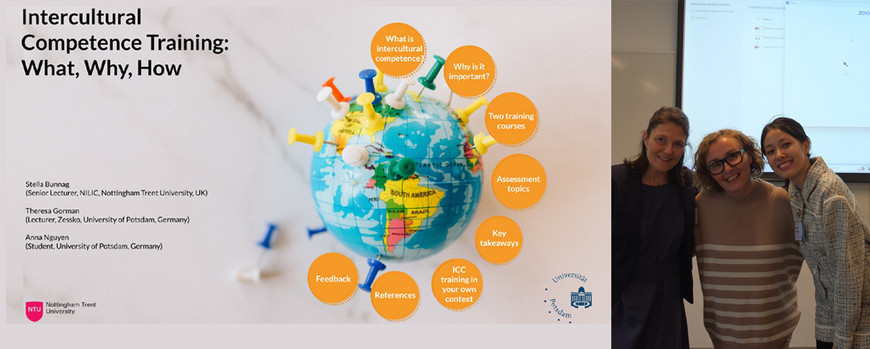XVIII CercleS Conference 2024: “Multilingualism and the Anglosphere”
Scenic Durham University (UK) provided the backdrop for over 160 presentations in several languages, four keynote speeches, and over 300 delegates from 28 countries. The conference title framed the presentations and workshops on virtual exchanges, intercultural competence, the use of new digital technologies in higher education, and more.
The growing popularity of collaborative online international learning (COIL) projects was evident, with the conference kicking off with a COIL Speed Dating Session. Many presentations detailed international projects, including “Experiencing Culture Through Language: Experiences from an Innovative COIL Format (German/Hebrew) and Intercultural Communication” by Dr Ruth Tobias (FU Berlin), Chaya Fischer, Nadia Fischer, and Alix Glotz. Their three-week intensive course includes both A1-level German and Hebrew language instruction and English-language modules on intercultural competence. The presenters showed how courses like this can be valuable preparation for in-person international exchange or provide virtual international experiences.
Anna Nguyen and Theresa Gorman (UP, Zessko) collaborated with Stella Bunnag (Nottingham Trent University) to present “Intercultural Competence Training: What, Why, How.” This practical talk offered definitions of intercultural competence and rationale for fostering this competence in courses such as Intercultural Communication at Work (“ICCaW”, NTU) and language modules such as UNIcert III/2 English for Economics and Business Studies (UP). Anna Nguyen provided the perspective of both student and student assistant in COIL courses.
Dr John Y. H. Bai (Carl von Ossietsky Universität Oldenburg) gave the keynote speech, “Developments in Digital Technologies and Artificial Intelligence Applications in Higher Education.” Dr Bai and his colleagues at the Center for Open Educational Research are gathering the viewpoints of teaching staff on the use of AI applications in higher education. He touched upon the notion that machine grading should be more objective than human grading. Quite the opposite is true, however, since human scoring is used as training data, resulting in algorithms which reproduce the opinions of the original graders. Concluding his talk, Dr Bai asked the audience to contemplate the socio-political ecosystem in which AI technologies are developed.
The CercleS conference organizing team is to be commended for holding this wonderful conference.
(For more information about Dr. Bai’s research project, please contact Theresa Gorman.)
Contact: Theresa Gorman
Published on October 25, 2024
Anna Nguyen was able to take part in this conference thanks to the generous support of the Universitätsgesellschaft e.V.

